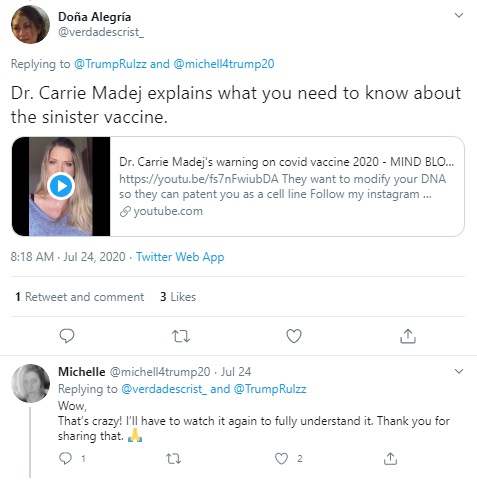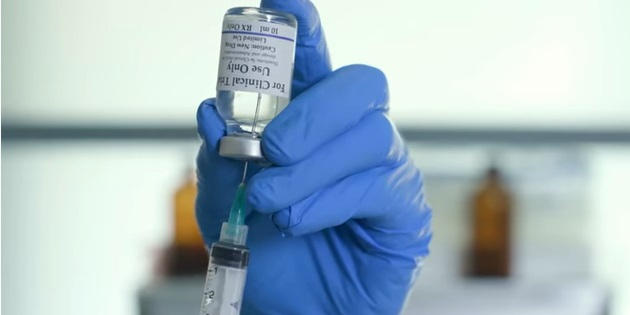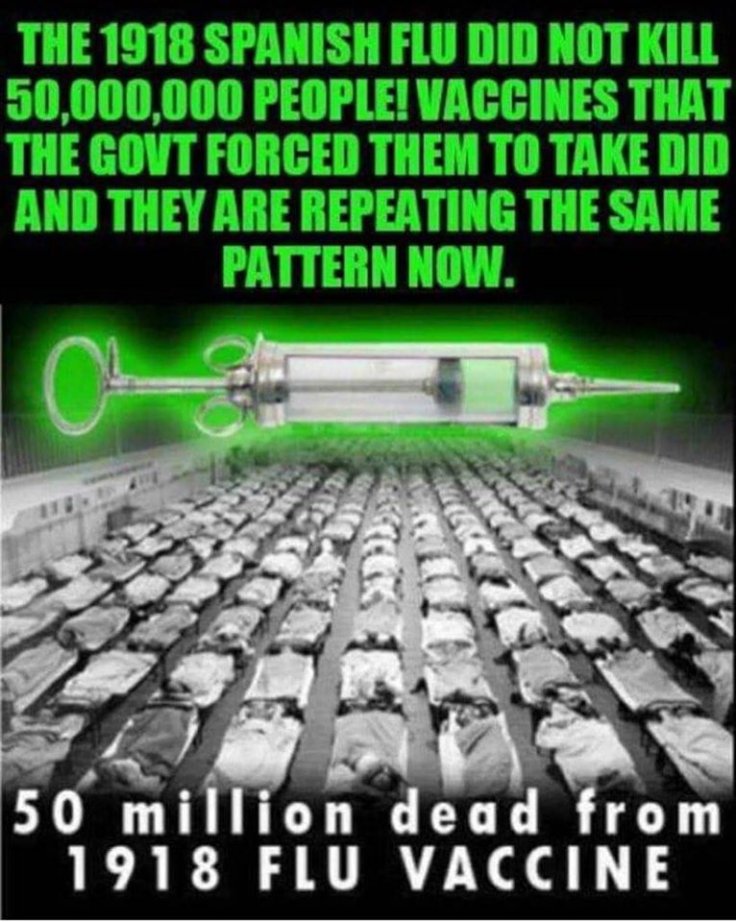Around 40 countries have reported a record single-day increase in COVID-19 cases, over the past week, showing a peak in the Coronavirus pandemic in every region of the world. While, scientists are busy developing an effective vaccine against the disease, the anti-vaccine movement is marshaling against it.
Such movements have gained traction online in recent years as campaigners opposed to the vaccination have shifted their focus to making baseless claims about the novel Coronavirus. Here are some facts that should be known before falling prey to fake news.
Human DNA and Coronavirus
A video, made by osteopath Carrie Madej, emerged on social media platforms, claiming to reveal details about the Coronavirus vaccine trials. The video includes a false claim that the vaccine will change candidates' DNA and added that these vaccines are "designed to make us into genetically modified organisms."
The Osteopathic Internal Medicine physician also claims that the vaccines will "hook us all up to an artificial intelligence interface," and many people believed what she said.
As of now, there are several vaccine candidates in the clinical trials around the world, said the World Health Organization (WHO), but there is no proof that these vaccines will alter human DNA. These vaccines do not contain technology to link people up to an artificial interface. The fact is, these vaccines are designed to help the human body to fight against viral infection, by creating a stronger immune response.
Madej shares several false information which also included that vaccine trials are "not following any sound scientific protocol to make sure this is safe." But according to several scientists and experts, any kind of vaccine or medication must undergo safety checks. For example, Swedish hospitals abandoned the trial of chloroquine after they noticed severe side effects on COVID-19 patients.
The said video was first uploaded on YouTube in June, where it gained over 44,000 views and around 1,000 likes as of now. The video also became popular in social media sites like Facebook, Twitter, and Instagram and many people have been sharing Madej's video.

Claims About the Trials
After the Oxford vaccine researchers revealed the primary results of this week, in social media, some of the Facebook users posted comments stating that they did not want the vaccine as they believe that they will be used as "guinea pigs."
Some of the people also claimed that while a normal vaccine development takes around 15 years, the accelerated Coronavirus vaccine creation process may sabotage its safety. But Prof Andrew Pollard, head of the Oxford Vaccine Group, told BBC that the rigorous safety processes included in all clinical trials were in place. As of now, the fastest vaccine, produced by scientists is the mumps vaccine—which took four years to go from collecting viral samples to licensing in 1967.
Even though the vaccine development process is quite long, in this pandemic period, scientists have claimed that they are working to produce an effective remedy to the disease within one or one and a half years a vaccine is made available.

In terms of the Oxford vaccine, claimed to be the most promising candidate at this point of time, is into its third phase of the trial, with thousands of volunteers taking part and all of them under constant monitoring for any side-effects.
Even though 16 to 18 percent of the early trial participants reported fever, scientists confirmed that there were no dangerous side-effects from taking the vaccine in the first two phases as the fever could be manageable with paracetamol.
After the vaccine trial started, it was also claimed that the first recipient of the Oxford vaccine had died, but it turned out to be a fake news.
Vaccines Killed People 100 years ago?
A post aka meme has been circulating on social media which claimed that vaccines caused the death of 50 million people during Spanish Flu in 1918— but this is a false claim as there was no vaccine at that time and the only hope was unproven remedies.

Historic records show that before the development of vaccines, the world's healthcare system was very different. In fact, a very few human achievements or technology in history saved human lives in huge numbers that the vaccines did. In the 1700s, before the invention of vaccines the child mortality rate under five years, was 40 to 50 percent. But after the development of vaccination, this rate has fallen dramatically below one percent in developed countries.









